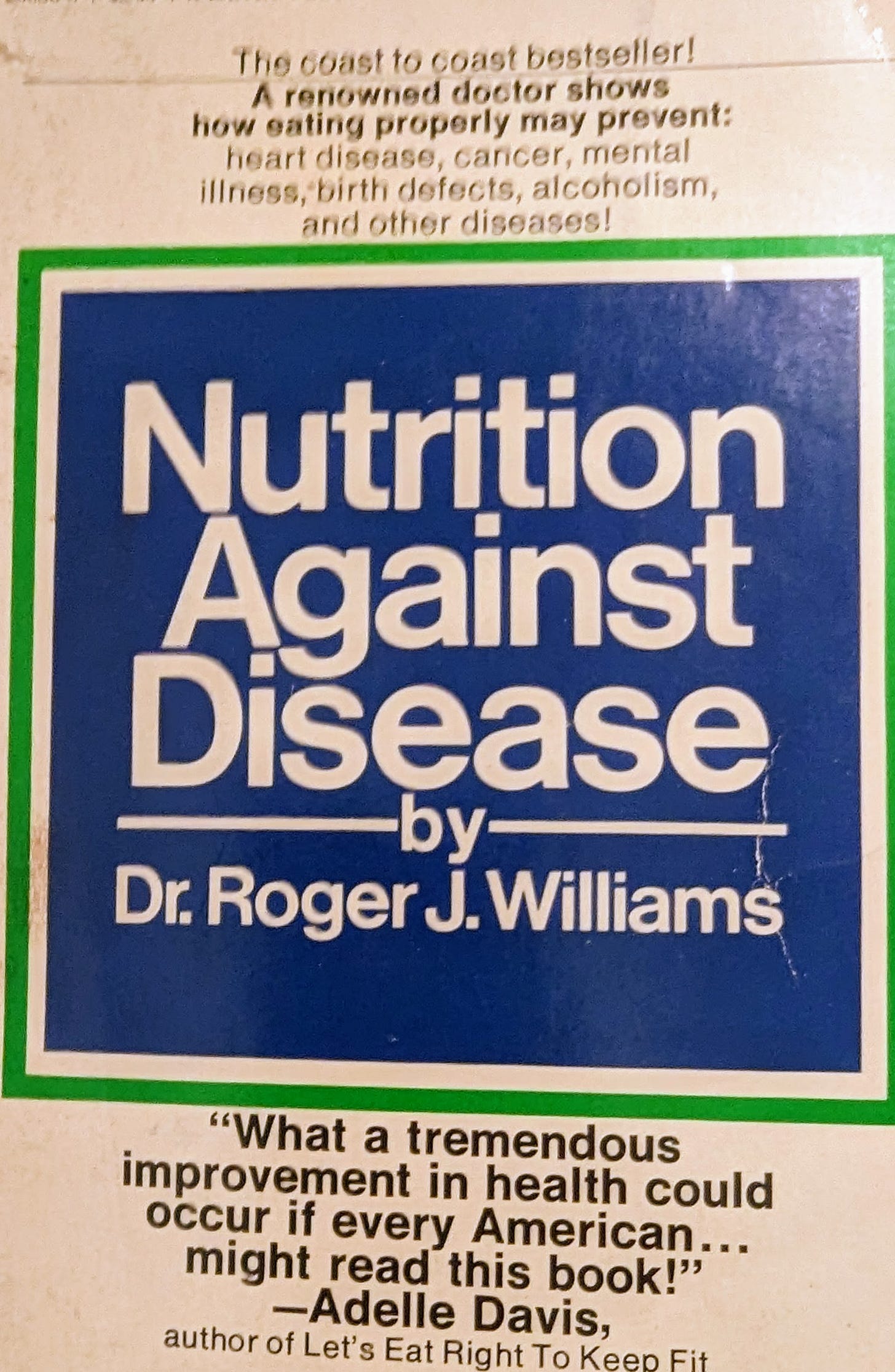Life’s Best Medicine Episode 140: Ally Houston and Dr. Rachel Brown discusses nutrition, metabolic health, and mental health. Dr. Rachel Brown is author of Metabolic Madness: Understand Why Metabolic Health Is Key to Mental Health (Your Keys to Success).
I’m reading Metabolic Madness now and appreciate the many footnotes to published research. More Dr. Brown on DietDoctor page:
I work in a busy inner city crisis team, treating a wide variety of mental disorders. For ten years I have practised LCHF nutrition, and in more recent years have followed a ketogenic lifestyle with intermittent fasting. I wholeheartedly believe in the importance of lifestyle management - activity, sleep, stress management and nutrition, for managing chronic inflammation and associated conditions. …
A previous post, Brain Energy and Metabolic Minds notes books and websites, and a new research agenda for documenting the impact of what we eat on how we feel.
This morning, ppening Roger William’s Nutrition Against Disease (1981) to random page (157):
What kind of evidence is there to support the general thesis that mental disease is caused primarily by nutritional deficiencies in the environment of brain cells? With respect to any nutrient, we may ask the following three questions: Does a deficiency of this nutrient cause mental disease? Is there evidence of this deficiency among those afflicted with mental disease? Will the administration of this nutrient have a curative effect on those who are mentally ill?
In the case of niacinamide, the answers to all these questions are positive. A deficiency causes mental disease; niacinamide deficiency exists among those who have this mental disease; administration of niacinamide may bring about remarkable cures. The evidence with respect to a number of other nutrients is less complete, but, as we shall see, the amount of such evidence is large.
A few years ago Linus Pauling, a brilliant chemist (the only person ever to receive two separate Nobel Prizes), published a highly significant article in Science entitled "Orthomolecular Psychiatry." Ortho comes from the Greek meaning "straight," and orthomolecular (p. 158) psychiatry is the kind that would be concerned with straightening out brain chemistry.
In his article Pauling stresses the importance of "the substances normally present in the human body" and of the "essential nutrilites"– the nutritional substances. Specifically, he mentions the nutrients vitamin B, niacinamide, ascorbic acid, thiamine, pyridoxine, folic acid, magnesium, tryptophan, and glutamic acid, as all being concerned with brain functioning and thus with mental disease. In the discussion he explains in scientific terms why nutrients may have to be administered in relatively large amounts to bring about beneficial results.
It should be noted that while Pauling is not a physician, nor would he claim to be acquainted with all the psychiatric literature, it is obvious that he is in a position to know what there is to be known about brain chemistry. From this standpoint his discussion makes sense. He is well aware of the limitations of present knowledge and would not risk his reputation by dealing with a subject so far removed from his specialty as psychiatry-unless he were on solid ground and competent to make the suggestions he has made.
If niacinamide, for example, were the only nutrient needed by brain cells, the problem would be simple. Actually, however, brain cells, like the others in our body, need the whole nutritional gamut.
To clarify the complex situation, let us imagine a purely hypothetical case. Suppose that there are ten nutritional deficiencies any one of which can cause mental disease. To simplify further, suppose that 10 percent of the common cases of mental disease are caused by each of these deficiencies. If this were so, an examination of the whole population of people afflicted with mental disease would not yield impressive statistics with respect to the importance of any one lack, and yet in accordance with our supposition, every case of mental disease would be caused by nutritional lacks.
Conventional medical research is not averse to investigating single questions such as, Is a lack of vitamin B (or pyridoxine or niacinamide) a common cause of mental disease? When the question is asked and (p.159) answered with respect to one specific nutrient, the results may be unimpressive. What needs to be asked—and almost never is—is the broader and more pertinent question: Do various nutritional lacks or combinations of them commonly cause mental disease?…
The full text of Nutrition Against Disease is available on Internet Archive.





